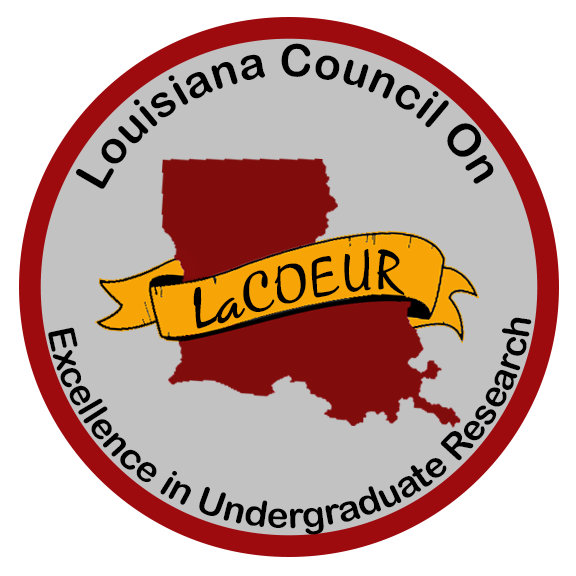About Us
 LaCOEUR stands for the "Louisiana Council On Excellence in Undergraduate Research." The acronym was thought up by Dr. Ramesh Kolluru, the Vice President for Research, Innovation, and Economic Development, and it was fully formed early in 2017 by Dr. Terrence Chambers of Engineering, and Dr. Julia C. Frederick of the University Honors Program. Working in tandem with the Office of Research, the Provost, and the University Honors Program, LaCOEUR hopes to strengthen the possibilities of what can be achieved for the university and for students in undergraduate research.
LaCOEUR stands for the "Louisiana Council On Excellence in Undergraduate Research." The acronym was thought up by Dr. Ramesh Kolluru, the Vice President for Research, Innovation, and Economic Development, and it was fully formed early in 2017 by Dr. Terrence Chambers of Engineering, and Dr. Julia C. Frederick of the University Honors Program. Working in tandem with the Office of Research, the Provost, and the University Honors Program, LaCOEUR hopes to strengthen the possibilities of what can be achieved for the university and for students in undergraduate research.
The idea began with Dr. Frederick's implementation of the Honors Undergraduate Fall Invitational (now the Undergraduate Research Conference) and its inaugural showcase at the Picard Center in early 2010. Modest in its beginnings with 20 or less presenters, now through the help of other campus faculty and staff the conference has grown in size to include a significant number of schools, research topics and majors, mini-grant opportunities, and an online publication. A Committee for Undergraduate Research was set up and included the Provost, the deans of each college, and multiple department heads. From this committee, LaCOEUR has evolved and is still growing to become a strong support for undergraduate research. Additional information can be found throughout the LaCOEUR section of the website which will provide links to these opportunities.
LaCOEUR (Louisiana Council On Excellence in Undergraduate Research) is the governing body for undergraduate research. LaCOEUR, which in French translates to "heart," is a joint project between multiple faculty, students, and staff to provide undergraduates with opportunities to grow and professionally expand their matriculation at the Univeristy of Louisiana at Lafayette.
For years, undergraduate students have looked towards the university for educational options that enhance their education and prepare their portfolios for future endeavors. Faculty of the university are working diligently to provide these opportunities to undergraduate students through undergraduate research grants, online publication, undergraduate conferences, and by recognizing potential for deeper student learning. In addition to furthering research at the university, students become more adept at:
|
|
|
|
These skills in turn create a strong community of active and bright students that can further the goals of the university as it works to become a premiere research environment and resource for the state, the faculty, and most importantly the students.
